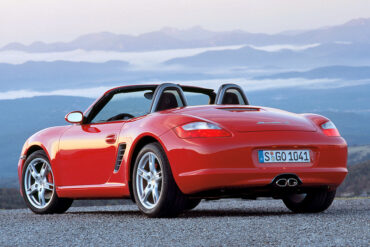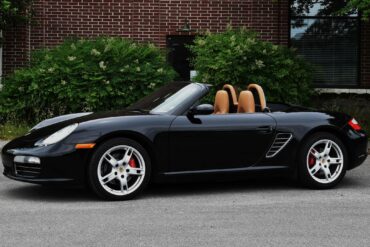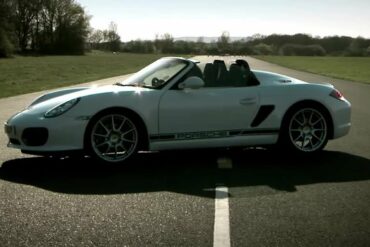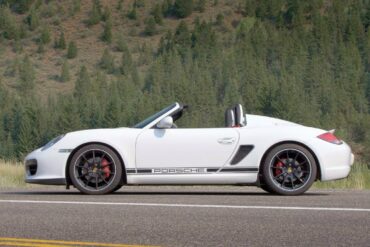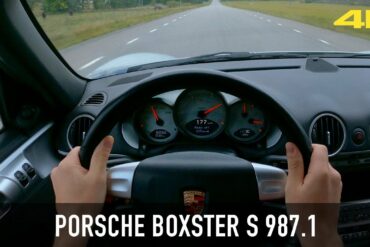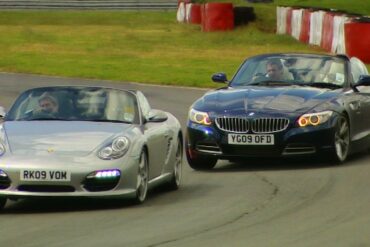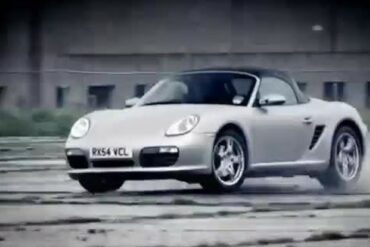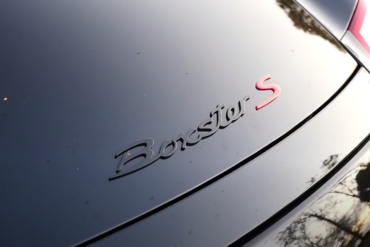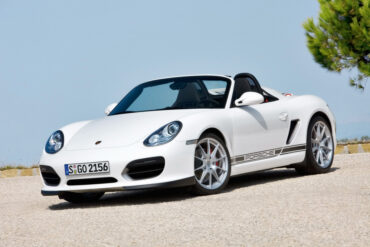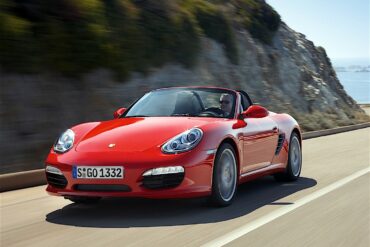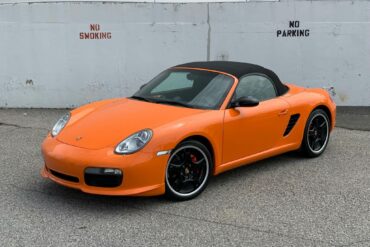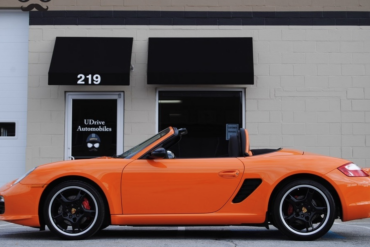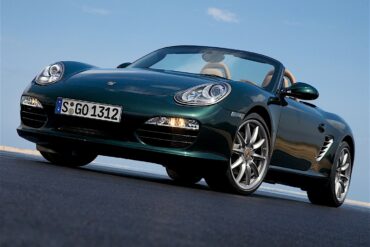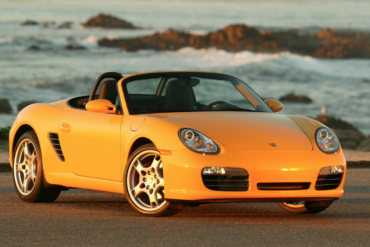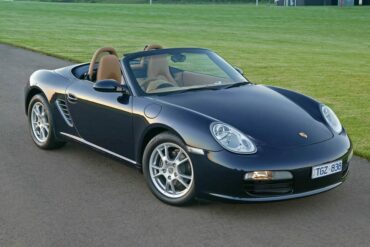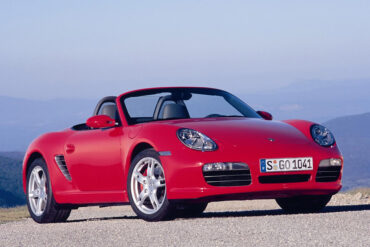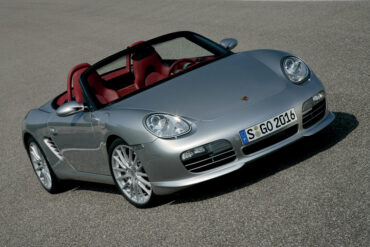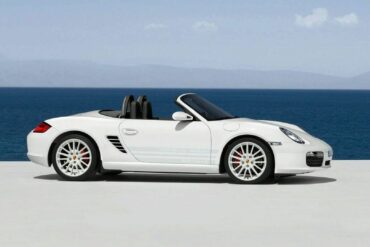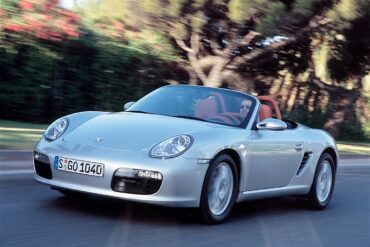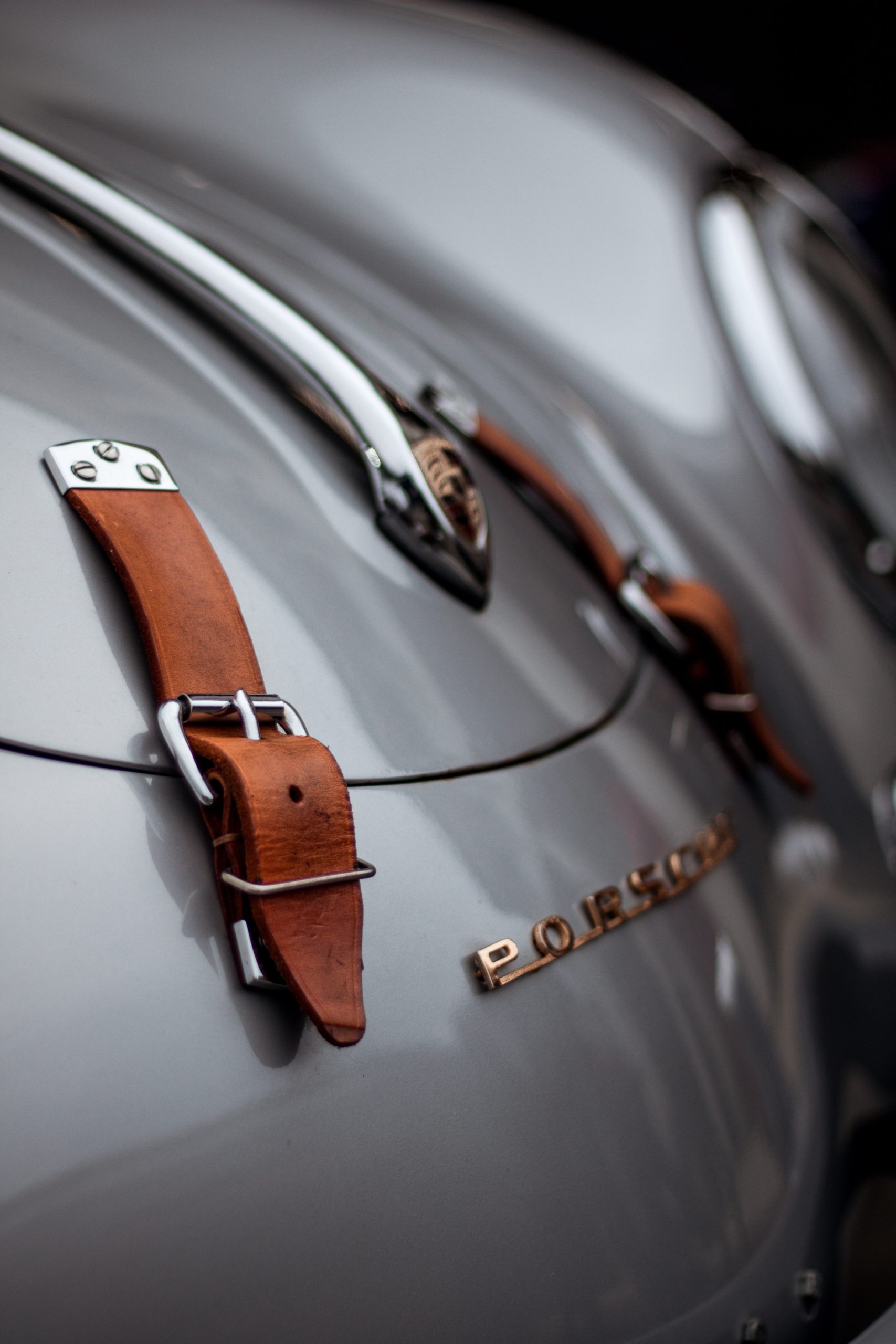2005-2007 Porsche Boxster & Porsche Boxster S Service Schedule This maintenance service schedule checklist is ONLY for the following Porsche...
2008 987 Porsche Boxster & Porsche Boxster S Service Schedule This maintenance service schedule checklist is ONLY for the following...
Porsche Boxster Spyder – Fifth Gear Review It’s lighter and lower than a normal Boxster and it claims to be...
Porsche Boxster Spyder – Top Gear Review James May takes a rare trip out onto the Top Gear track to...
Porsche Boxster Spyder – Uniquely Attainable During the 987 generation of the Boxster, Porsche made a limited edition Spyder variant....
Porsche Boxster S 987 280HP manual POV drive (Binaural audio). LOUD EXHAUST. 4K 60FPS. POV drive of a 2005 Porsche...
Fifth Gear – BMW Z4 vs. Porsche Boxster S Watch as Jason and Tiff battle out which car is better,...
Ultimate Bargain – A Used Porsche Boxster 987 We take you through all the good, bad & weird features on...
Top Gear Challenge – Porsche Boxster S vs Army Part one of two. Jeremy tests Porsche Boxster S & Mercedes...
Owner Tells Us What He Loves About His ’05 Boxster S Hey guys my name is Ben and welcome back...
On 5 November 2009, Porsche officially announced the Boxster Spyder, which was the lightest Porsche on the market at the time, weighing 1,275 kg , 80 kg lighter than a Boxster S. This was achieved through the elimination of the conventional soft top's operating mechanism, the radio/PCM unit, door handles, air conditioning, storage compartments, cup holders and large LED light modules on the front fascia, although some of these could be re-added to the car in the form of options. Weight saving was also gained using aluminum doors, an aluminum rear deck and the lightest 19-inch wheels.
The 2008 facelift of the Boxster S is powered by a new direct-injection 3.4-liter Boxer engine which develops more power than the earlier variant. The styling got a bit updated with some redesigned headlight casings, taillights, and bumpers, while the interior got new infotainment and more material/color combinations. There's a revised 6-speed manual as well as a new 7-speed PDK gearbox. Performance improves, with power now at 310 hp, rocketing the 987.2 Boxster S from 0 - 60 mph in just 5.2 seconds and to a top speed of 170 mph.
Porsche gave us something special in 2008, the Limited Edition Boxster and Boxster S. Pricing started at $59,900 for the Boxster S version. The Limited Edition’s bright orange paint was previously featured on the race-ready Porsche 911 GT3 RS. The Limited Edition is equipped with a sport exhaust system, and safety bars (also painted orange). The SportDesign package is also included.
Porsche unveiled its 2008 Limited Edition Boxster and Boxster S models at a private gathering at the occasion of the 2007 New York Auto Show. Largely inspired by the 2007 911 GT3 RS, only 250 examples of each model were produced in brilliant orange. Other special exterior features included glossy black painted mirrors, alloy wheels, front and side air inlets, and model designation.
In 2008, the second generation of the Boxster received new technologies and more power. It reached almost the same power as the former Boxster S, from the first generation. The 2.9-liter unit replaced the older 2.7-liter engine and offered 10 hp more than the older engine. It was paired as standard to a 6-speed manual, and a 7-speed PDK (Porsche dual-clutch) automatic was available as an option. The outside gets some welcome design tweaks also, while on the inside we get some updates and more technology options.
For the 2007 model year, the base Boxster received a revised engine featuring VarioCam Plus to provide a 3.7 kW (5.0 hp) power increase (183 kW (245 hp) the same as the Cayman). The Boxster S' engine was upgraded from 3.2-litre to 3.4-litre, resulting in a power increase of 11 kW (15 hp) more (220 kW (295 hp) the same as the Cayman S). These upgrades made the Boxster series and the Cayman series equivalent in terms of power.
The 2007 model year Boxster got a change that most people don't think is significant, but is. Model year 2007 is when the base Cayman joined the 987 lineup. The interior and exterior remained mostly the same, but the Boxster S received the Cayman S 3.4-liter flat six while the 2.7 in both the Boxster and new Cayman received VarioCam Plus, which bumped horsepower up to 245. Think of this model year as Porsche taking the changes to get the base Boxster 2.7 to the same level as the recently introduced base Cayman.
The second generation of Porsche Boxster came out in 2004 at the Paris Motor Show and shared almost the same design with its predecessor. The Boxster S came with the 3.2-liter flat-six engine mated to a standard 6-speed manual transmission, while a 5-speed Tiptronic S (automatic) with manual override to select gears was on the options list. The Porsche Stability Management was fitted as standard. It got a bump on power over the prior generation Boxster S as well as a newly modernized exterior design. The interior was also upgraded and was much nicer.
In November 2007, Porsche announced a commemorative RS60 Spyder edition of the Boxster to celebrate Porsche's 1960 win in the 12 Hours of Sebring in Florida. Only 1,960 units were produced worldwide with each model bearing a numbered production badge on the dash. The RS60 Spyder came only in GT Silver Metallic exterior colour while the standard interior is Carrera Red leather, with dark gray leather as an option. The RS60 came standard with 19 inch SportDesign alloy wheels, Porsche's Active Suspension Management System, and a sports exhaust that increased the engine output to 303 PS (299 hp; 223 kW).
The limited production Boxster S Porsche Design Edition 2 debuted in October 2008 as 2009 model. It featured a free-flowing exhaust system, which raised power from 217 kW (291 hp) at 6,250 rpm to 223 kW (299 hp) at an identical 6,250 rpm. It came in a unified Carrera White paint scheme with matching white 19-inch wheels, a black and grey interior with white gauges, red taillights and light grey stripes along the body. 500 were made for the worldwide market, 32 shipped into the U.S. and 18 into Canada.
The original Porsche Boxster was a huge success and help Porsche grow its customer base, so when the second-generation Boxster (987) came to the US market as a 2005 model it wasn’t a surprise that it followed a similar formula. While the 987 Boxster retained only 20 per cent of the 986’s DNA, it looked similar enough to us that it felt more like a mild refresh than a totally new model update. The engine and transmissions were, for the most part, carry-overs, albeit with the obligatory and customary modest bump in performance and power (now at 240 horsepower).


